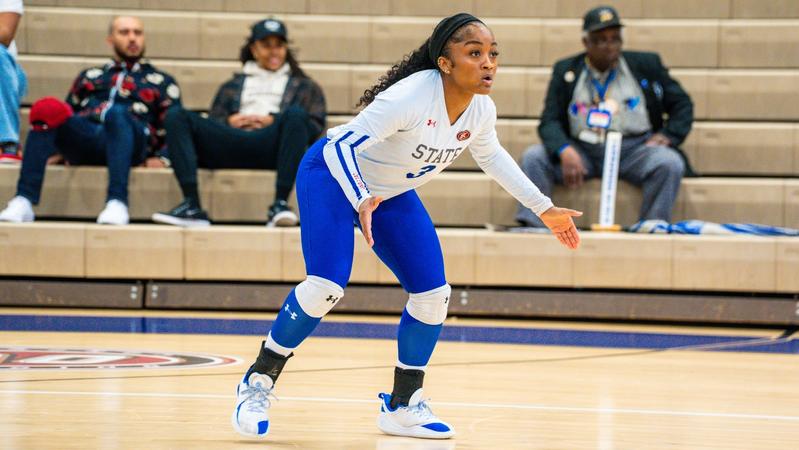Sports
Three podium finishes Friday for Dutch men at league track meet
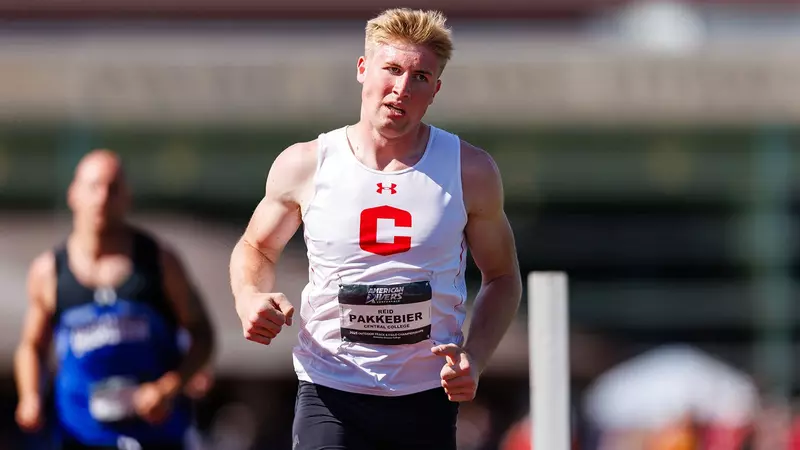
INDIANOLA — On the first full day of action at the American Rivers Conference Outdoor Track & Field Championships Friday, a trio from the Central College men’s track and field team earned top-three finishes.
The Dutch men are fifth with 34 points through the completion of eight of 22 events.
In the decathlon, Reid Pakkebier (senior, Cedar Rapids, Kennedy HS) took second with 6,407 points and Gage Huyser (junior, Pella) was third with 6,366 points.
“They had a nice day two,” coach Brandon Sturman said. “There were some ups and downs for both. They did what they needed to get us some team points.”
Jack Brown (sophomore, Norwalk) placed third in the 3,000-meter steeplechase in 9 minutes, 4.13 seconds.
“He’s a really good steepler but was up against two other national qualifiers,” Sturman said. “It was the first really hot day of the year but Jack ran great. He would have loved to run faster but we’re happy with how he competed.”
Also in the 3,000-meter steeplechase, Randy Jimenez (senior, Liberty Center, Southeast Warren HS) was fifth (9:12.76) and Derek Webster (senior, Norwalk) was seventh (9:23.99). The 4×800-meter relay squad of Alex Volden (freshman, Cedar Rapids, Kennedy HS), James Brant (freshman, Tama, South Tama HS), Blake Creed (sophomore, Washington, Mid-Prairie HS) and Jack Every (Grimes, Dallas Center-Grimes HS) was seventh (8:08.07)
Central also got points in field events from Gunner Meyer’s (junior, Fairbank, Wapsie Valley HS) sixth-place finish in the high jump (6-2.25), Kale Purcell’s (senior, Holton, Kan.) seventh-place finish in the long jump (22-2.5) and Kale Hobart’s (sophomore, Mason City) eighth-place finish in the long jump (22-1.75)
The Dutch also had six individuals for qualify Saturday’s finals in five different events.
The final day of competition from the league championships start with field events at 10 a.m. running events begin at 1:30 p.m.
Top-10 finishes
3000-meter steeplechase – 3. Jack Brown, 9:04.13; 5. Randy Jimenez, 9:12.76; 7. Derek Webster, 9:23.99; 9. William Wadsley, 9:26.74
4×800 relay – 7. Alex Volden, James Brant, Blake Creed, Jack Every, 8:08.07
Discus throw – 9. Alex Zarlatanes, 142-10
High jump – 6. Gunner Meyer, 6-2.25
Long jump – 7. Kale Purcell, 22-2.5; 8. Kale Hobart, 22-1.75
Decathlon – 2. Reid Pakkebier, 6,407 points; 3. Gage Huyser, 6,366 points
Qualified for Saturday’s finals
200 meters (prelims) – 7. Kaleb Brand, 22.03
400 meters (prelims) – 3. Kaleb Brand, 48.22
800 meters (prelims) – 7. Jack Every, 1:56.37
110-meter hurdles (prelims) – 1. Gunner Meyer, 14.22; 3. Grant Miller, 14.39; 5. Connor Miklos, 14.52
400-meter hurdles (prelims) – 2. Kale Hobart, 53.98
Sports
Second School Record Falls; Sewell Succeeds in World Championships on Saturday – University of Cincinnati Athletics
Sports
Giles Breaks Shot Put Program Record at Tryon International Collegiate Opener

TRYON, N.C. – The High Point University women’s track and field team traveled to the western part of the state to compete at the Tryon International Collegiate Opener hosted by Big South Conference foe UNC Asheville. The Panthers used this meet as practice for the Big South Indoor Championships that will take place at the same facility at the end of February.
High Point had a group of throwers and combined events student-athletes make the trip.
In the throwing events, Ashlyn Giles broke her own program record in her second meet as a Panther in the shot put. She threw a 15.43m throw for first place which was 0.43m farther than her previous record. She also competed in the weight throw and launched the weight 15.32m for third place.
Vanessa Kobialka placed in second behind Giles in the shot put with a 13.27m throw. Jill Stroup placed fourth in the weight throw and matched Giles’ throw with a 15.32m launch.
Jhanelle Thomas and Mya Hines competed in the 60m hurdles and crossed the finish line in back-to-back times as Thomas registered a 9.08 time and Hines posted a 9.25 time for fourth and fifth place respectively. Thomas also competed in the high jump and cleared 1.47m for a six-way tie for third. Kaitlyn Green was right there with Thomas in the high jump also clearing 1.47m for third place.
UP NEXT: High Point travels to Blacksburg, Virginia for the Virginia Tech Invitational on January 16-17.
#GoHPU x #OnTheProwl
Sports
Ufodiama Sets Program Record at Rod McCravy Memorial

LOUISVILLE, Kentucky – East Carolina opened the indoor season with several strong performances at the Rod McCravy Memorial Meet, hosted by the University of Kentucky at the Norton Healthcare Sports & Learning Center, highlighted by a program-record run from Kelly Ufodiama and multiple finals appearances across the two-day competition.
Ufodiama delivered the standout performance of the meet for the Pirates, setting a new ECU program record in the women’s 60-meter dash semifinals with a time of 7.14. The mark further cemented her place atop the record book, as she now holds the top eight performances in program history in the event.
On the men’s side, East Carolina made a strong statement in the sprints. Tyson Tippett finished runner-up in the men’s 60-meter dash finals, clocking 6.85, while Jace Coleman added a fourth-place finish at 6.89 to give the Pirates two top-four finishes in one of the meet’s deepest events.
The Pirates also found success in the hurdles, where Kailey Elliott advanced through the rounds to place fourth in the women’s 60-meter hurdles finals with a time of 8.27. Her performance marked one of ECU’s top technical-event finishes of the weekend.
Abrielle Schweitzer continued her strong indoor campaign with a third-place finish in the women’s mile, crossing the line in 4:52.34. On the men’s side, Alex Sawyer placed ninth in the mile with a time of 4:14.67, while Elliott Kleckner followed closely in 11th at 4:21.33.
Additional solid efforts came in the 300 meters, where Brianna Clayton finished 13th in the women’s race at 38.70, and in the men’s 600 meters, where Jordan Good narrowly missed the podium with a fourth-place finish in 1:18.34.
In the field events, Shakiel Dacres led the way for East Carolina with a sixth-place finish in the men’s shot put with 16.66m. Dacres’ performance marked the Pirates’ top result in the throws.
East Carolina finished strong over the weekend and will look to carry their victories toward the Dick Taylor Challenge, hosted by North Carolina starting January 16.
Sports
Track & Field Wins Six Events, Topples School Record in Excellent Close to Rod McCravy Memorial – Ole Miss Athletics
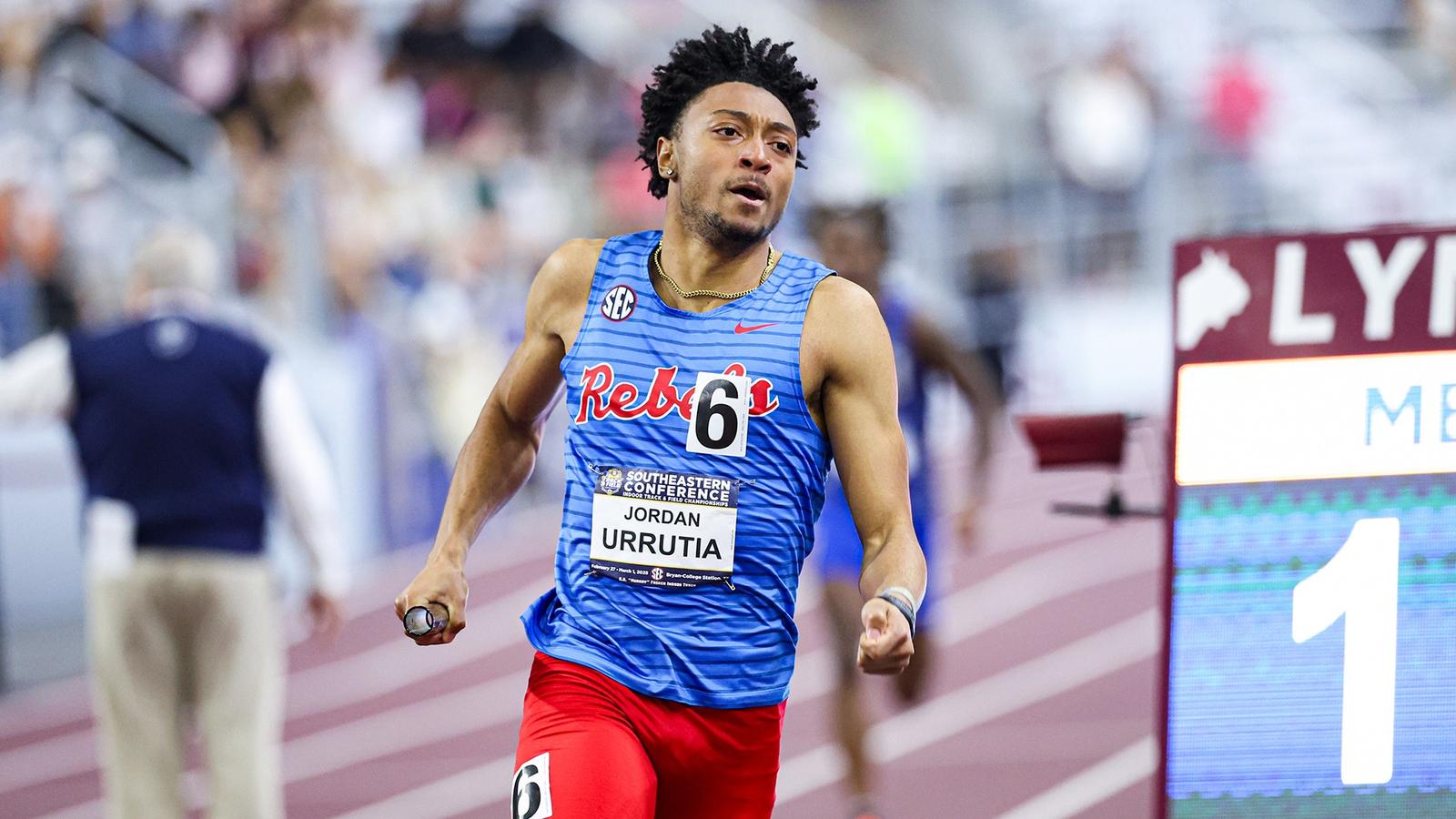
All-American sophomore Jordan Urrutia, fresh off a strong freshman campaign, set right to work on his second season with the Rebels. Urrutia clocked the fastest proper 300-meter race in Ole Miss history (trailing only a converted 300-yard time on an oversized track by Olympian Tony Dees in 1984), finishing second overall in a blistering 33.06 seconds. That time dropped nearly three-quarters of a second off his freshman best 33.71, and trailed only a 32.89 by Indiana’s Trelee Banks-Rose.
Fellow sophomore Wesley Todd clocked a PR of his own, finishing 10th at 34.07.
The duo were not done there, though, as Ole Miss would close the day with an excellent opening 4×400-meter relay for the 2026 season. The quartet of senior Joshua Knox, Todd, senior Cade Flatt and Urrutia passed the stick in 3:08.85 – which ranks fourth-best in Ole Miss history indoors and is the fastest by any Rebel relay indoors since the 2004 record of 3:06.83.
Ole Miss was particularly excellent on the back half, with Flatt dropping a 46.93 third leg and then Urrutia blazing a 45.45 anchor leg.
The success on the track did not stop there for the Rebels. Earlier in the day, Patchnalie Compere ran the fastest time ever by an Ole Miss freshman in the women’s 300-meter dash, winning the event overall at an eye-opening 37.40. Olympian and three-time NCAA Champion McKenzie Long set the Ole Miss record in the event at 37.38 in 2023 on Vanderbilt’s oversized track.
Senior Cassie Williamson, in her final year of competition this indoor season, took the crown in the women’s 800-meter at an Ole Miss career-best 2:08.51 – which ranks her seventh in school history indoors. Freshman Owen Kelley rounded out the track wins for Ole Miss with a victory in the 3K, clocking in at 8:16.11 in his collegiate debut.
Other notable runs on the track included a runner-up finish by senior Chase Rose in the 800-meter (1:49.56), a third-place finish and PR by Samuel Ferguson in the 3K (8:21.18), and a third-place 3K finish by freshman Leah Penick in her collegiate debut (9:45.89).
In the field, reigning NCAA Indoor shot put champion Tarik Robinson-O’Hagan began his title defense in earnest. Robinson-O’Hagan – a member of the preseason watch list for The Bowerman, college track & field’s version of the Heisman Trophy – won on a sixth-round blast of 20.76m/68-01.50 for his first win of the season, the best mark by an collegiate shot putter this early into the season (Jan. 10) in available records since at least 2008.
Freshman Ashton Hearn began his Ole Miss career with an impressive heave of his own, finishing third at 17.84m/58-06.50 – already good for No. 6 in school history indoors.
In the women’s edition, All-American junior Akaoma Odeluga had her best-ever season opening performance as well, winning on a blast of 17.92m/58-09.50. Freshman Natalie Brown also made the final, finishing ninth at 13.71m/44-11.75 in her first college shot put competition.
In the men’s triple jump, two key portal additions for the Rebels – juniors Sterling Scott (Missouri) and Kyle Johnson (UConn) – had great opening performances to their Ole Miss careers. Scott, a three-time NCAA qualifier with the Tigers, took runner-up honors at 15.97m/52-04.75 – already making him the sixth-best triple jumper in Ole Miss history indoors. Johnson was fourth at 15.67m/51-5, good for No. 12 in the Rebel record books.
Fellow junior Mikoy Holmes made the final as well, finishing eighth at a career-best leap of 14.81m/48-07.25.
Ole Miss will next head to Nashville for the Vanderbilt Invitational, which is set to run Jan. 16-17.
REBELS IN DAY TWO COMPETITION
Women’s 300-Meter Dash
1. Patchnalie Compere – 37.40 – Collegiate Debut, Ole Miss Freshman Record
51. Royannah Farmer – 41.04 – Division I Debut, First Career 300
Men’s 300-Meter Dash
2. Jordan Urrutia – 33.06 – PR, Ole Miss Proper 300-Meter Record
10. Wesley Todd – 34.07 – PR
Women’s 800-Meter
1. Cassie Williamson – 2:08.51 – Ole Miss Best, No. 7 Ole Miss History Indoors
Men’s 800-Meter
2. Chase Rose – 1:49.56
DNF Cade Flatt
Men’s Mile
2. John Shoemaker – 4:10.39 – Collegiate Debut
Women’s 3K
3. Leah Penick – 9:45.89 – Collegiate Debut
6. Hannah Doyle – 9:55.25 – Collegiate Debut
10. Brooke Preputnick – 10:09.99 – PR
11. Madison Archdale – 10:10.22 – Collegiate Debut
12. Addy Mitchell – 10:11.94 – Collegiate Debut
Men’s 3K
1. Owen Kelley – 8:16.11 – Collegiate Debut
3. Samuel Ferguson – 8:21.18 – PR
Men’s 4×400-Meter Relay
1. A Relay: Joshua Knox, Wesley Todd, Cade Flatt, Jordan Urrutia – 3:08.85 – No. 4 Ole Miss History Indoors
11. B Relay: Tarique Wright, Dekell Minor, Jonathan Stock, Chase Rose – 3:18.47
Men’s Pole Vault
5. Logan Kelley – 5.00m/16-04.75
Women’s Triple Jump
10. Indya Dotson – 11.94m/39-02.25 – PR, No. 15 Ole Miss History Indoors
11. Bayli Major – 11.83m/38-09.75 – Collegiate Debut
FOUL Madison Martinez
Men’s Triple Jump
2. Sterling Scott – 15.97m/52-04.75 – Ole Miss Debut, No. 6 Ole Miss History Indoors
4. Kyle Johnson – 15.67m/51-5 – Ole Miss Debut, No. 12 Ole Miss History Indoors
8. Mikoy Holmes – 14.81m/48-07.25 – PR
11. Solomon Finley – 13.96m/45-09.75 – Ole Miss Debut
Women’s Shot Put
1. Akaoma Odeluga – 17.92m/58-09.50
9. Natalie Brown – 13.71m/44-11.75 – Collegiate Debut, No. 15 Ole Miss History Indoors
12. Temidayo Owoyemi – 13.27m/43-06.50 – Collegiate Debut
Men’s Shot Put
1. Tarik Robinson-O’Hagan – 20.76m/68-01.50
3. Ashton Hearn – 17.84m/58-06.50 – Collegiate Debut, No. 6 Ole Miss History Indoors
26. Caughran Fowler – 10.91m/35-09.50
28. William Numnum – 10.56m/34-07.75 – Collegiate Debut
—–
REBELS IN DAY ONE COMPETITION
Men’s 60-Meter Dash – Prelims
7. Tarique Wright – 6.79q – PR, T-No. 11 Ole Miss History
Men’s 60-Meter Dash – Semifinals
11. Tarique Wright – 6.79 – Ties PR
Women’s 200-Meter Dash
27. Lizzie Hatton – 25.22 – Indoor PR
Women’s 400-Meter Dash
13. Patchnalie Compere – 59.17 – Collegiate Debut
Men’s 600-Meter
6. Jonathan Stock – 1:19.51 – PR
Men’s 1000-Meter
2. Stone Smith – 2:28.65 – Event Debut
Women’s 60-Meter Hurdles – Prelims
35. Bayli Major – 8.90 – Collegiate Debut
40. Carmela Coulter – 9.15 – Collegiate Debut
44. Nyajah Gordon – 9.38
Men’s 60-Meter Hurdles – Prelims
12. Caughran Fowler – 8.46q – PR
17. William Numnum – 8.80q – Collegiate Debut
Men’s 60-Meter Hurdles – Semifinals
12. William Numnum – 8.66 – PR
17. Caughran Fowler – 8.67
Women’s High Jump
NH Carmela Coulter
Men’s High Jump
1. Arvesta Troupe – 2.23m/7-03.75 – Indoor PR, No. 3 Ole Miss History Indoor
Women’s Pole Vault
5. Lily Beattie – 4.05m/13-03.50
T6. Mary Cate Doughty – 3.90m/12-09.50
11. Katie McFarland – 3.75m/12-03.50
13. Aly Francolini – 3.75m/12-03.50
T14. Rachel Homoly – 3.75m/12-03.50 – Ole Miss Debut, No. 15 Ole Miss History Indoors
NH Katelyn Hulsey
Women’s Long Jump
10. Indya Dotson – 5.73m/18-09.75
25. Nyajah Gordon – 5.19m/17-00.50
FOUL Lizzie Hatton
Women’s Weight Throw
1. Akaoma Odeluga – 22.95m/75-03.50 – 5-foot PR, No. 5 Ole Miss History
2. Skylar Soli – 22.21m/72-10.50 – PR, No. 6 Ole Miss History
4. Nyah Edwards – 20.50m/67-03.25 – Ole Miss Debut, 4-foot PR, No. 9 Ole Miss History
9. Natalie Brown – 18.87m/61-11 – Collegiate Debut, No. 13 Ole Miss History
13. Naomi Woolfolk – 17.90m/58-08.75 – PR, No. 15 Ole Miss History
16. Temidayo Owoyemi – 16.66m/54-8 – Collegiate Debut
Men’s Weight Throw
2. Tarik Robinson-O’Hagan – 23.78m/78-00.25 – Top Collegiate Finisher
3. Bryson Smith – 22.11m/72-05.50 – PR, No. 2 Ole Miss History
4. Mason Hickel – 21.27m/69-09.50
Sports
Streit and Godfred Shine at Minnesota Open

Streit secured her first lifetime best in the weight throw since February of 2025 (Gopher Classic) to finish second on Saturday behind only teammate Anthonett Nabwe (22.82m | 74-10 1/2). Streit, a 2025 weight throw First Team All-American, moved up from No. 5 all-time at Minnesota to No. 4 with the performance and now is No. 3 in the NCAA this season.
On the men’s side it was Godfred who captured the attention of the crowd with his two runs in the 60m. The two-time Big Ten outdoor long jump champion, running unattached, posted lifetime bests of 6.65 and 6.62 to secure the event win in Minneapolis. Godfred’s previous lifetime best in the event was 6.70 (2024 M City Classic) and would rank the Nigerian inside the top three nationally among men’s NCAA sprinters in 2026.
The other seven event wins for the in-uniform Gophers on Saturday included: Victory Godah (60m – 7.58), LauBenra Ben (200m – 25.09), Zeal Kuku (400m – 55.68), Kitania Headley (800m – 2:13.00), Charlotte Lange (3000m – 9:54.82), Sofia Condon (Pole Vault – 4.01m) and Nabwe (Shot Put – 16.11m).
Eight other Minnesota victories on Saturday came from unattached student-athletes. Jordan Dunigan capped the day off with a lifetime best in the weight throw at 20.52m (67-4) while teammates Precious Opinion (Triple Jump – 15.25m), Brooke Moore (Triple Jump – 12.49m) and Waukeem Walters (Long Jump – 7.27m) also picked up wins in field events at the Minnesota Open. On the track Minnesota’s unattached runners won three other events, which included: Joseph Manser (400m – 48.84), Ramy Ayoub (600m – 1:18.37) and Nontokozo Ncube (600m – 1:30.55).
The ‘U’ will head out to Lincoln, Neb., for the Graduate Classic, the first road meet of 2026, from January 16-17. Minnesota will not return home until January 30, at the Jack Johnson Classic.
For more information on the Gophers, continue to check back with GopherSports.com. Keep up with the University of Minnesota cross country and track and field team on X.com (Twitter) and Instagram (@GopherCCTF) and on Facebook, so you do not miss any content during the season.
Sports
Men’s Volleyball Continues Homestand Against Wildcats
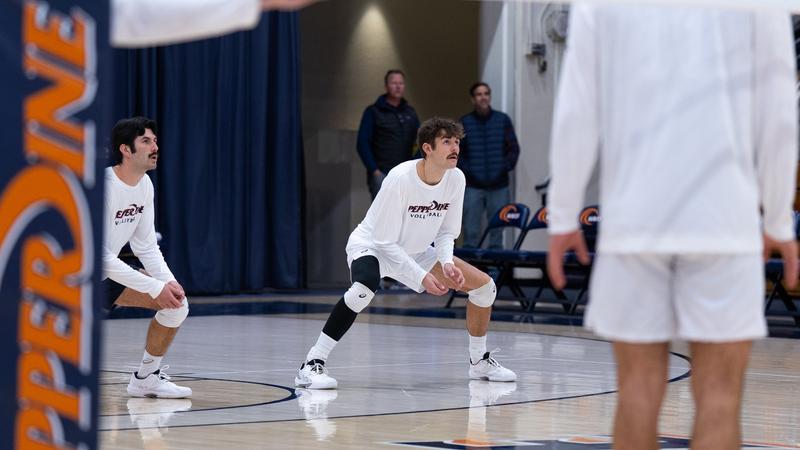
MALIBU, Calif. – The Pepperdine men’s volleyball team (1-0) plays the second match of the weekend in Firestone Fieldhouse against the Daemen Wildcats (0-1) Sunday afternoon.
LAST TIME OUT
•Pepperdine opened the 2026 campaign with a three-set sweep over St. Thomas Aquinas Friday night in Malibu.
• The Waves are coming off an incredible season with the farthest run in the NCAA tournament since 2019, losing to eventual National Champion Long Beach State in the semi-finals.
• Pepperdine finished 4th in the MPSF, making a run in the conference tournament hosted in Malibu, beating higher-seeded USC and UCLA to win the whole thing.
GAME NOTES
• This season marks the 56th and final season with Firestone Fieldhouse as the home for Pepperdine Men’s Volleyball
• Pepperdine will move into the Mountain at Mullin Park for the 2026-27 season.
• The Mountain is a new 3,600-seat arena that will give Pepperdine a state-of-the-art competition venue, complete with a 360-degree high-definition scoreboard, VIP and hospitality spaces, and custom team locker rooms.
• Owning 5 NCAA titles and 18 MPSF titles, with the most recent being earned last year, the Waves are no stranger to what it takes to put together a championship-level team.
• With one of the toughest schedules in the NCAA, Pepperdine is setting the season up for success with a NCAA quarterfinal rematch against Loyola Chicago, a semifinal rematch with Long Beach State and a trip to the islands, taking on No. 2 Hawai’i in March.
• Opening No. 4 in the AVCA preseason poll, the Waves are only behind LBSU, Hawai’i, and conference-foe UCLA.
• Ryan Barnett, James Eadie, Cole Hartke, and Jacob Reilly all return as All-Americans for the Waves.
• Barnett, Hartke, and Reilly all played on some level of the national team this summer.
• Ryan Barnett earned a silver medal with the U23 team at the Pan American Cup while also playing on the senior USA team with Jacob Reilly in the Pan American Cup.
• Cole Hartke earned a bronze in the FIVB World Championship with the U21 team, the farthest the USA has ever gotten in the tournament.
• Redshirting last season, Grant Lamoureux is a player to keep an eye out for on this star-studded roster.
• Named the Junior Male Indoor Athlete of the Year this past year, the redshirt freshman brings plenty of experience regardless of never logging collegiate minutes.
• This summer, Lamoureux was a captain of the U19 World Championship squad with team USA where he led the team in kills nearly every time out.
• Redshirt Ford Harman transferred into Pepperdine from national-champion Long Beach State.
• This summer, Harman earned a Silver medal at the 2025 Men’s Beach Collegiate Challenge for team USA.
• Harman is originally from Santa Barbara, playing at Santa Barbara HS before college.
• Outside of the United States, the Waves represent three other countries in Cuba, Serbia, and Switzerland.
• Andrej Polomac, a transfer from Purdue Fort-Wayne, is the sole Serbian on the squad, brings elite experience as a setter with an average of just under 9 aces per set last season.
• The Waves add even more international experience next year with two of the three commits coming from overseas, bringing another Serbian to Malibu as well as a middle blocker from the Czech Republic.
• In his fourth year at the helm, Winder is coming off his most successful season last year with a run to the final four in the NCAA tournament.
• Last season, Winder led the Waves to an MPSF title, the program’s first since 2019.
• As the ninth coach at the helm, Winder is an alum of the program himself, earning a National Title with Pepperdine in 2005.
SERIES HISTORY WITH DAEMEN
• In two matches against the Wildcats, Pepperdine holds the 2-0 advantage.
• Two seasons ago, in the most recent meeting between the squads, Pepperdine took the 3-0 victory in Firestone Fieldhouse.
• The only other matchup came in 2020 on the road, where the Waves swept them 3-0.
SCOUTING THE WILDCATS
• Daemen dropped the opening match of the 2026 season against No. 10 UC Irvine 3-1.
• Last season, the Wildcats went 15-13, including 4-4 in conference play.
• The Wildcats are back-to-back Northeast Conference champions, winning their tournament as the three seed last season.
• Daemen has four All-conference players returning in Maverick O’Neill, Billy Wieberg, Kyle Zelasko, and Jariel Giraud
First serve is scheduled for 3 p.m. The game can be streamed on B1G+ (subscription required) with live stats available on pepperdinewaves.com
ABOUT PEPPERDINE MEN’S VOLLEYBALL
Pepperdine men’s volleyball boasts one of the richest histories in collegiate volleyball, with five NCAA National Championships. Four of those championships came under the direction of Hall of Fame coach Marv Dunphy who totaled 612 victories in 34 seasons at the helm. With 19 NCAA Appearances and 63 All-Americans, the program has consistently been a destination for top talent across the country. Under current head coach Jonathan Winder, the Waves reached the NCAA Final Four in his third season at the helm in 2025.
TICKETS
For more information and to purchase tickets to upcoming home events, visit here.
FOLLOW
To stay up-to-date on the latest Pepperdine women’s soccer news, follow the Waves on social media @PepperdineMVB_ .
-

 Sports3 weeks ago
Sports3 weeks agoBadgers news: Wisconsin lands 2nd commitment from transfer portal
-

 Rec Sports1 week ago
Rec Sports1 week agoFive Youth Sports Trends We’re Watching in 2026
-
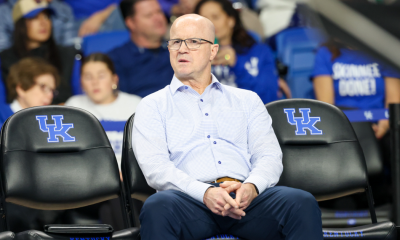
 Sports2 weeks ago
Sports2 weeks agoKentucky VB adds an All-American honorable mention, loses Brooke Bultema to portal
-

 Motorsports3 weeks ago
Motorsports3 weeks agoDr. Patrick Staropoli Lands Full-Time O’Reilly Ride with Big Machine Racing
-

 Rec Sports3 weeks ago
Rec Sports3 weeks agoNBA, Global Basketball Community Unite for World Basketball Day Celebration
-

 Sports2 weeks ago
Sports2 weeks ago2025 Volleyball Player of the Year: Witherow makes big impact on Central program | Nvdaily
-

 Sports2 weeks ago
Sports2 weeks agoColorado volleyball poised to repeat success
-

 Motorsports2 weeks ago
Motorsports2 weeks agoBangShift.com IHRA Acquires Historic Memphis Motorsports Park In Millington Tennessee. Big Race Weekend’s Planned For 2026!
-

 NIL3 weeks ago
NIL3 weeks agoInsider Reveals Biggest Reason Behind Colorado’s Transfer Portal Mass Exodus
-

 Sports2 weeks ago
Sports2 weeks agoH.S. INDOOR TRACK & FIELD: GLOW region athletes face off at Nazareth University | Sports



































